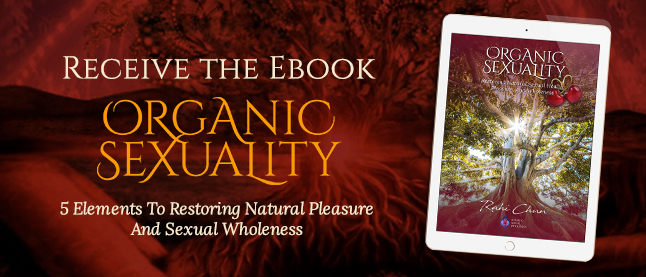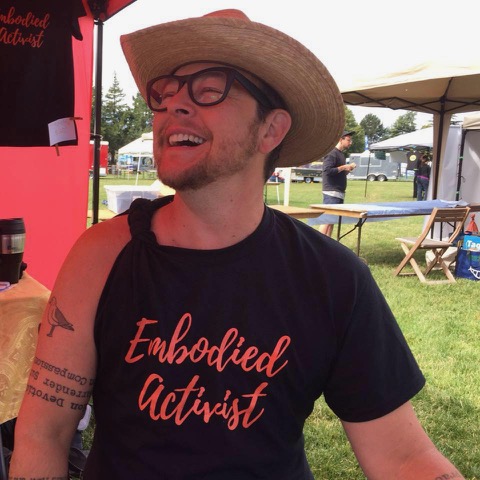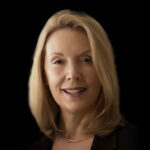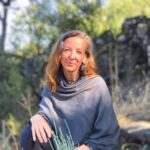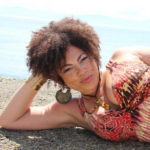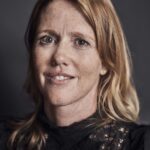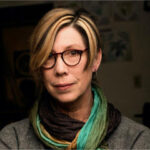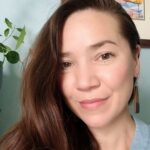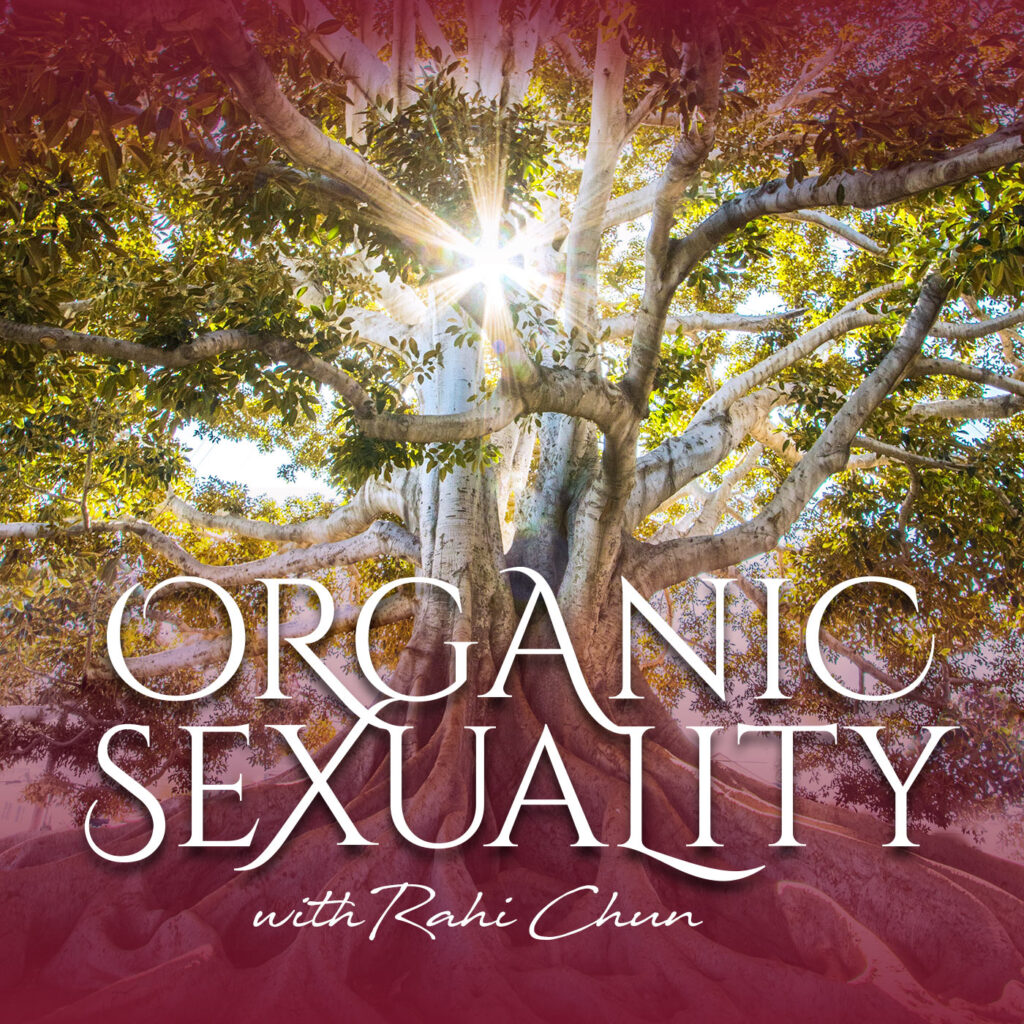
How Not Fitting Into Normative Sexuality Boxes Can Lead to Discovering Your Authentic Sexuality & All About Somatic Sex Education
Share this episode:
I first met Dr. Snowdon when they interviewed me as a candidate for the Somatic Sex Education training they were directing at The Institute for the Advanced Study of Human Sexuality. When we finally met in person during the hands-on module, I was struck by their unique combination of authority, inclusivity and togetherness. It was clear that they were directing the training and “in charge” yet at the same time, they facilitated in a way where we all felt empowered to also be in charge – leading to our sense of togetherness and co-creation. This is a special gift that Captain brings to trainings which invites and encourages participants to become the authority of their own experience, all the while, feeling guided and supported in doing so. They have since co-created the phenomenal Institute for Somatic Sex Education with Caffyn Jesse and Corinne Diachuk, taking the best of so many Somatic Sex Education trainings they’ve all been a part of, and adding their own unique magic, wisdom, and grace into the mix.
Today’s Guest:
dr. liam ‘captain’ snowdon lives uninvited on the territory of the Lekwungen and WSÁNEĆ peoples on Vancouver Island. Their background is in social justice, street outreach, counseling, harm reduction, somatic sex education and poetry with youth and adults. Some current incarnations of captain’s work, are developing “Queer Dying” end of life care and planning for queer folks, co-teaching and co-creating Somatic Sex Education trainings in Canada, and bringing somatic work wherever they go. They run the Sex Positive Art and Recreation Center. They are in love with the ocean and their PALs (partners in anarchist love) and spend a lot of time with their 89 year old father.
We explore:
How Dr. Snowdon’s enhanced engagement with sensory perception due to “learning disabilities” as a child invited a development in somatic awareness, which combined with their exploration of sensorial intimacy within queer communities, prepared them brilliantly as a trainer and teacher of somatic sexual arts.
How Dr. Snowdon’s resonance with the feminist lesbian/dyke community aligned and informed their early socio-political and cultural understanding and activism during a time when queer and trans-awareness was not as prevalent as today.
How when “Queer,” “Kinky,” “Leather,” “Trans,” and “Gender-Queer” are boxes that fit to some degree, but not completely, a deep experiential exploration of embodied sexuality can lead to discovering one’s own embodied reality and truth.
How the absence of conversation regarding the role oppression plays within our collective experience of sexuality is in itself oppressive – by ignoring the ways race, gender, sexual orientation/identity, systemic power & privilege and sexual & gender-based violence plays out via the sexual dynamics of our society.
How every body’s sense of safety or oppression affects and is affected by another body’s, and how all of our bodies also affect and are affected by our collective nervous system affecting how we relate and engage with each other sexually.
How the Institute for Somatic Sex Education co-created by Dr. Snowdon, Caffyn Jesse and Corinne Diachuk seeks to attune to the individual pace and sense of safety of its student practitioners whilst facilitating somatic awareness and facility of embodied pleasure, voicing consent & boundaries, and the wisdom and benefits of hands-on Somatic Sex education.
How powerful and pleasurable it is to witness a student or client somatically reclaim their body’s authority and ability to voice their honest and unequivocal “no,” in addition to their full-bodied and authentic “yes.”
How having a beginner’s mind for learning, a natural interest for discussing & exploring sexuality, along with an understanding that we are our own authority regarding our body – are amongst the most supportive qualities for becoming a Somatic Sex educator – and how these can be cultivated during one’s training.
Rahi: Welcome to Organic Sexuality, where we explore the restoration of pleasure, the reclamation of sexual sovereignty and the realization of our embodied sexual nature,. An invitation to honor the pleasures of your body by embodying the pleasures of your nature. I'm your host, Rahi Chun. I'm a certified somatic sex educator, sexological bodyworker and creator of Somatic Sexual Wholeness. Rahi: Today. It gives me great pleasure to invite Dr. Liam Snowden or Captain, as I am used to calling them who was the director of my somatic sex education training years ago. How does one explore and discover their sexual truth when their embodied experiences are outside of society's narrowly defined norms? Dr. Snowden generously shares their journey, in addition to sharing insights into the various Somatic Sex Education trainings they've been a part of over the years, including the one they've co-founded - The Institute for the study of Somatic Sex Education. Rahi: So I'm really, really honored and thrilled to have Dr. Liam Snowden to the podcast today. I know him as Captain -he was the director of my sexological bodyworker training at the Institute for the Advanced Study of Human Sexuality, which was pivotal in my journey of becoming a somatic sex educator. Dr. Snowden for over 10 years has been co-teaching within one or both of two of the main somatic sex education trainings in North America. Currently at the Institute for somatic sex education. And then the one in North America, the one that I did was the sexological body worker training, as well as being faculty on the Institute for Sexual Education and Enlightenment. Captain - thank you so much for joining us. It's great to see you. Captain : It's my pleasure to be here, Rahi. It's great. Um, I just want to let you know that, I think that when we met, I was trying on the pronoun "he" for a while and I'm back to using "they" and loving. Rahi: Okay, wonderful. Wonderful. So, yeah, thanks for letting me know,. You know, because you've been - because your life is really so involved in depth and breadth, and you've seen the evolution of somatic sex education in a variety of different programs and perspectives. I would love to know what the influences and experiences were in your journey that guided you towards becoming a somatic sex educator and trainer. Captain : Oh, super sexy question. Thank you. I guess as a way of just sort of centering in the land and recognizing the territories that I'm on, which is an important piece for me, I just also want to say that I'm coming to you from [La Quandian territory, territory as the Songhee and Esquimo peoples, indigenous folks, here, AKA Victoria, British Columbia, Canada, colonial name, the colonial names. Yeah, the journey around all of this. I think I didn't figure - I didn't figured this out too later, but definitely the pieces around being a kid growing up with a ton of learning disabilities and having the ways that I learned in the world, sort of not being valued. That was kind of, that was at a time where there wasn't a lot of understanding or knowing about learning disabilities. Um, and so I had this little spark in myself of knowing that I was smart, but not in the ways that were valued in the system at the time. Captain : And so I would just like go around and engage with the world, you know, through my body and through my senses and not as much through my head and in sort of a really communal way. Like I always cared about what was going on with people and how people were relating to each other and what happened when groups of people got together. And so I think that, you know, that manifested in jobs like working on the streets, in harm reduction and working in health. And then I was at a point in my life where I was coming out as transgender. I had come out as queer earlier on and been privileged to be exposed to all the things that one was exposed to in the nineties when, you know, sex and queerness were so connected. You know, I got exposed to community and polyamory and all the ways that folks had figured out how to be in relationship with each other outside of normative practices of relationship. Captain : And so I was like, what do I want to do now? And it was like spirituality, sexuality. Um, and so I sort of explored that, I'm a witch and I practice in the reclaiming tradition of witchcraft, but I was like, the sex was calling me more. So I did some exploration around what could, what could I do that would keep my attention for a whole bunch more years. Um, and I found the Institute in San Francisco, that's no longer there that we both went to and somehow they accepted me to go to school. So I went down to sex school in San Francisco and learned a lot more about myself, and at the end of to doing my doctorate down there, people have been telling me all the way along that there's this course that I would really, really like called sexological bodywork. And it was a separate thing. So you had to do it separately. And, so I gave it to myself as the present for being done my doctorate, and then the lights went off - bodies and sex, not just heads and sex. Rahi: Yeah. Yeah. So, you know, what's really fascinating from what I'm hearing Captain is the learning disabilities. I mean, it sounds like it was a blessing in that it gave you access to your sex, to your sensual and sensorial intuition and wisdom rather than - what happens a lot I think in our current educational structure where we get cut off from our bodies, because there's so much focus in the mind Captain : Yeah. Rahi: You were very like sensorially intuitive, intuitive to your sense, to your sense - feeling sense. And then moving into, communities in the nineties, it sounds like where you, where the culture was very much about exploring that sensorial intelligence and pleasure. And so it kind of like, I mean, it's set you up perfectly to be a trainer and educator in somatic sex education, because you were already so attuned to your body's senses. Captain : Yeah, absolutely. I think that's a really great way of looking at it. And what I hear in that is a thing that I reflect on sometimes is like the wounds, the wounds being the gifts some of the time, like not always, but yeah. And I just had, you know, a tremendous amount of community support around being who I am, because, you know, once you question one pillar like sexual orientation and then the other pillars of like, how am I going to do relationship? Um, and then the other pillars of like, how am I going to be in my body around gender? Like the Greco Roman Coliseum just kind of falls down because all the structures that were holding it up - and then we get to make up, we get to make up our lives. Rahi: Yeah. Well, I wanted to ask you about that because I think we came of age around the same time, uh, you know, like my high school class was 85 and the AIDS scare was kind of coming out. So, you know, like if people were afraid around sexuality then, but like back then, were there support systems for you to explore your identity? Or, I mean, cause if I'm, if I think back to my high school, you know, twenties, there was definitely gay and lesbian resources. I think the resources and awareness or education or support around queer identity was even lacking then, much less trans. Captain : Yeah. I mean, I, I wasn't exposed to anything until my twenties. Um, and I, you know, and I wasn't living in a particularly conservative place or with particularly conservative parents, but it just, it wasn't, it wasn't available nor did I, nor did I have the language, which I think is the other thing to describe myself. Rahi: And so like the lack of kind of support systems and the awareness and the culture that was not there at the time. How did you, um, like your own exploration and understanding of your own identity? How did that evolve? Cause it sounds like you explored your identity and that evolved into an understanding and accepting your trans nature. Captain : Yeah. Well, the first gaggle of people that I found that some of me fit with was fabulous, amazingly political, um, and diverse, feminist, some of who were, who were lesbians and. Um, and so I just, I got an education that I will be lifelong grateful in around feminism, patriarchy and power and oppression privilege. And of course that I'm always learning tons more about, but yeah, that foundation really, I found a way of welcoming being, I found community there, but the, and the problem with that was that my politics felt, fit really nicely there. And, um, I was finding like liberation for lots of pieces of myself, but I wasn't particularly interested in having sex with women. So, um, parts of parts of me fit Rahi: And then you've always been communal, so the politics fit there with that community. And then how did your, I mean, it's a very personal question, but, but how did your, um, how did your sexual needs get met and through doing so, how did your sexual identity, evolve and blossom? Captain : Hmm, that's a sweet question. Um, lots of trial and error, you know, and lots of, um, gracious lovers. Uh, once I got more comfortable with my own body and pleasure, pleasure with myself, things got a lot more possible with other people. I think that there was a lot of things were happening at the same time. Um, I was exploring a lot more kinky-related things. I was traveling around more in Radical Faerie community. So sort of, you know, back to the land, Queer men and other beings movement, um, finding more communal spaces to be in, around sexuality and then just living more as on the gender spectrum in a place that felt more comfortable for me and being seen in the world a little bit more of the way I wanted to be seen Rahi: So it sounds like, when you say getting more comfortable in your own body and your own, like, and I mean, it's such a foundational practice for, for our somatic sex education is the orgasmic yoga to really be, to take ownership really of the, of our own pleasure, and get so familiar with the erotic terrain of our own bodies. Um, and it sounds like that combined with being in community with other like folks that were not identified with kind of the boxes that were being presented by society, kind of the, uh, I mean, I think our sexuality is really kind of infinite and undefined, but you kind of found your tribe in that. It sounds like. Captain : Yeah. And I think that I've been in and out of lots of different gaggles with people and having lived up and down the West coast of these two countries. Um, there's a lot, there's a lot of different communities that I've been a part of. And, but definitely like queer, the words queer, the words kinky, the words trans, the words gender-queer which is my favorite. Um, the words, leather, those are all boxes that fit to some degree and also helped me find my people in a community whether it's online or in-person Rahi: Very cool. So I wanna, I want to ask you Captain because I know you're also, an anti-violence worker. I wanted to ask you about the role oppression plays in sexual embodiment and expression. And I feel like the, I feel like it's not, I don't think it's really discussed very much in sexuality or sex sacred sexuality circles. It's kind of like, I think people like once it's the topic is broached or introduced people kind of can see how it, you know, the pivotal role oppression plays in our sexual expression, but I'd love to hear from you because yeah. What, what role does oppression play in our sexual embodiment and expression and does it's very omission from the conversation affect our collective sexuality? Captain : Yeah. I love this question. Um, and of course I, I'm learning tons about this stuff all the time and making mistakes and trying to get up again and try again. But, um, yeah, I think what's really important, especially in spiritual communities. There seems like there's a lot of still a lot of, sort of spiritual bypass of these, of the questions of oppression and power and privilege, and sexual violence and gender based violence, where it's, you know, there's still this like, Oh, we're all just one. Like let's not get mixed up in that kind of stuff. Cause we're all just one and really, you know, - no. Captain : Um, I think, and really like my liberation is tied up with your liberation is tied up with Black Lives Matter. Liberation is tied up with, um, the embodiment of each of us being able to be ourselves, but in a culture that's also impacted like deeply impacted by all of the, the systems that have been so oppressive to so many of us. And I think that it has a huge impact on us as individuals, which I think is what's being talked about a lot more lately, which is fantastic. Um, but also it impacts us being able to connect with each other across difference, right? If we've got all these ways that maybe we've been taught overtly or not overtly to engage with each other, who are different or in this box or that box, our bodies act differently around each other's body and not, and not necessarily consciously. Captain : So working to unpack the I'm interested in, in working in playing to unpack how our bodies engage with each other body, each other's bodies as a way to unlearn and learn ways of being sort of in love with each other in a better way. And, and, you know, there's lots of tons of great work being done, uh, Resmaa Menakem and a whole bunch of other folks around the cultural nervous system and what oppression and privilege and power and white supremacy has done to the cultural nervous system. You know, and if we can, if we can look at that in a broader way to this lots of what, there's a lots of doors into change there. And, it's, that's really exciting. Rahi: Yeah, yeah. Yeah. I mean, what I'm hearing is that, you know, like in the way that our nervous systems, uh, are like tuning forks, like if there's stuckness in one, there's going to be, it's going to resonate throughout all the tuning forks. And yet it feels like, I mean the whole nature of pleasure and sensuality requires a safe and present nervous system. And if there's any obstruction to that and, you know, influences like oppression is going to hamper and impede that not only for one person, but for the whole species. Captain : Absolutely. Yeah. And I'm not sure if like I, as a white person, am the right person to talk about this stuff at the moment. But there's a fabulous person named Onika Henry who is from Trinidad and Tobago. And I love to listen to her about this stuff. Um, and, uh, there's a piece on YouTube that she's done about reclaiming sexual identity through carnival she's from Trinidad and Tobago. And there's a lot of in there about reclaiming and fully embodying the tools that come with all of our sort of ancestral wisdom in when we can get ourselves in situations of collective embodiment and collective joy, which I think all of our cultures had some at some time, whether it was more recently or way long way long ago. So I'm just, I'm super excited and hearing, hearing from people who are talking about collective joy and collective liberation through the body these days, it's one of the reasons why, you know, when you talk to you ask me about, you mentioned the different programs, you know, I think that you, and, you know, we're around the same age. Captain : So it's there's, there was sort of a period. It seems to me, at least on the West coast of our countries, these countries here were like the way into sexuality and sexual healing was catharsis. Like you had to go big, go big, go big, go big, have the huge orgasm, have the big, uh, multiple person experience like override, or just super activate your nervous system. Right. And that's, you know, and then we went, Oh yeah, maybe that works for a few people, not everybody and who's being harmed in this process. So I think like the pieces, um, when I first studied sexological bodywork it, um, it was in that time. And so it came and early on when I was teaching it, I think I came a lot more from that, that, like let's just get to the sex thing. Like we know it's full of shame and stuff, but let's like, ignore the Shamie stuff a little bit and just like try it out. Captain : Um, and, and so I think like now what we've collectively learned and, um, what we wanted to create in our, in, in our school, um, is like a trauma informed practice, anti-oppressive practice, you know, creating these safety rails into all these fabulous modalities, which are under somatic sex education - of like masturbation coaching, uh, genital mapping, pleasure mapping, orgasmic yoga, which we now talk about as mindful erotic practice because it either needs to be orgasmic or yoga. Um, so like these practices are great, but not everybody can just jump right into them. So we wanted a lot more free ways of being with people, which I'm sure you've discovered in your private practice. Like, no people don't want to kind of all just get right on the table nor do we want them to. Rahi: Yeah, that's really, that's great that the school in Canada, the Institute for somatic sex education, it sounds like it really, really reflected the discoveries and awarenesses about the nervous system and about it's very, very trauma informed and comes from not only trauma informed, but also it's, non-binary, it's more inclusive, more neuro physiology based. And I was going to ask you like the, the differences between schools that you're, that you've been a part of. Um, so it sounds like the school that you have co-created with your co-founders have taken in the evolution of somatic sex education and understanding the role a down-regulated nervous system plays and pleasure and sexual. Captain : Yeah. I think we've really kept some of the things that we really love about sexological bodywork, which is, and some of the curriculum, which is like the hands-on pieces, the focus on pleasure, the noticing about what, you know, learning about what our core erotic themes are and therefore what, you know, sort of charges up our sexuality and making, being able to make choice and have voice around that. Um, but yeah, but like the consent pieces, lots more consent pieces, you know, big shout out to Betty Martin around bringing those pieces into, into the work around sexuality and really wanting to slow to walk our talk about slowing down to also, you know, you remember the program was like, go, go, go, go, go. And now you're done, but now there's like discrete courses. You can take breaks between, it's not a cohort model. Oh, life happened. Captain : So I'll take, I won't take this course for another six months and then just really developing the other thing. That's really important to us as, um, developing a community of practice. And as one of those things that really keeps us in the ethical practice and having people that know what our hot buttons are, so that when we approach them with clients or groups that we have people we can be accountable to. So Corinne Diachuk and Caffyn Jesse and I, yeah, we just kind of sat down and created what we wanted to create and looked at things and said, do you like this part? Do you want to do this part? Oh, nobody wants to, it's not joyful or pleasurable. Well, let's not do it. So we to came at it through our own pleasure. Rahi: Yeah. That's great. Yeah. Yeah. I mean, when I looked at, when I looked through the curriculum, it seems like it's all the best stuff from, from our training. And yet there's a respect for the, the pace that, that the nervous system, needs to be able to integrate and digest and feel safe really, and moving and moving through all of these processes. Um, and then, and then you're also faculty at the Institute for the Sexual Education and Enlightenment and how does, how, how is that different than the Canadian program? Captain : So, Roz Dischiavo and I went to the Institute in San Francisco together for our doctorate and we both came out of there being like, Ooh, we could create schools or we want to teach them. We came from really similar backgrounds around working with people around drug and alcohol and harm reduction and California and spirituality. And so, yeah, so Roz was, was the first one to go, I'm starting a school. And so I just kind of came along with, was delighted to come along with her on that journey and, teach with her, a wide variety of things. You know, I send a lot of, I send students who her school was so holistic and there's, um, a lot of select bodywork components. Um, and I send people who don't have, um, a sex education or a sex background there to like, learn more about sex and being a sex educator and, and just like information. Rahi: Yes, yes. Yeah. Whereas the, the Institute, um, somatic sex education is, is really more geared towards professionals would, would, is that what you would, is that how you'd kind of distinguish the two? Captain : Um, no, because I think that like Roz has a therapist route you can go and a sex educator route you can take in her program. Um, I think we're both really invested in people looking at their own stuff too. So I think, you know, if in, in our program, the first two courses are about looking at our own relationship to power and privilege and trauma and pleasure and centering, you know, our own pleasure in the whole process of it all often we're like, people are like, well, what about blah, blah, blah, blah. And we're like, wait for the wait for the next course, this parts about you. We have really similar philosophies and Roz's training. Most people that Roz trains don't do hands-on stuff. And when, and she sends people our way, if they want to do hands on stuff. Rahi: Okay. So that's a huge distinction then the hands-on and the non hands-on. Got it. Captain, I want to ask you, what you've enjoyed the most about teaching in each program, and I'm sure every year it's different because the cohorts are different and the flavor of each class is different, but like what, what brings you the most pleasure, and joy? Because you've taught so many different, um, he, you know, you've been a part of so many different trainings. Captain : Well, I would say like the answers, that question is like you, the students, um, things that I get so much delight in are, you know, talking to people like so many of the students are those people that have always been the people that their friends come to talk to about sex. Um, I don't know how many times I've heard that. Well, you know, I don't, you know, I'm not a therapist or anything, but I'm like, I've been talking about sex my whole life, because people have been coming to me to talk about it. I enjoy people that have been called to more traditional forms of sex work, coming into this practice and learning tons from them. I learned so much from the, we have, because people are just coming from all kinds of different places. I love the, some of my favorite moments are when people really understand in their body that they don't have to do something. Captain : We have this thing in our program about, don't gotta like, we'll invite people to do things, and then it'd be like, don't go gotta, and then when that moment, when people actually trust that there'll be no impact or punishment of not doing a thing. And this, like the shift that happens in people's body when, when they can use their no, and it's respected and seen, I just love that moment over it. I see you. I see you nodding, like over and over again. That moment is so great. And then just finding, uh, there's enough people in the field now, and I want to talk to you about this, about a current student, maybe after the call, there's more people in the field now to be like hooking people up and saying, this, person's been doing this for a while. You have a similar way that you want to do the work. Uh, let's like connecting and networking people. That's one of my favorite things. Rahi: Yeah. Cause you've actually seen the community evolve and grow and the years that you've been teaching. So now it must be really exciting to see, you know, like a whole network of kind of subsets of specialties and kind of different partnerships forming, you know, taking the work in all kinds of directions. But you know what you said earlier, Captain about like seeing the don't gotta kind of register and then the body experiencing the effect of it's. No, it's so huge. It's it's, I mean, it's like the body kind of wakes up to new software in the system. Captain : It is just over and over again. It just blows my mind. And really it is for so many people, it's just never been safe to say no. And so being able to help, like, of course it being different in each class, but help create containers that are safe enough for people to try on their no's and their yeses, you know? Um, yeah. That, those, those moments just blow my mind and just, yeah, it's such an also such a young profession that, you know, you know, of course there's been people in all different cultures doing sacred sexual healing and um, more traditional forms of sex work and all kinds of things, but in this particular incarnation, it's so young that we're all making it up together, which is another piece. Rahi: Yeah. It's exciting. It's really, really exciting. And to see the impact of it, you know, um, I mean, it must be thrilling for you to see it's kind of like birds fly out of the nest and then they become Eagles and, you know, and, and, uh, create their own kind of flavor and expression of what's possible sexually. Captain : Oh yeah. And I guess why I just keep being involved over, over and over again. And I feel like I like to check in with myself about that, you know, that being a choice as it's still joyful for me and the answer keeps being yes. And the, you know, my love of the communal it's a way of me keeping in the practice of checking in around myself around pleasure, or how has, how has shame creeped back in, you know, from culture to me and, and yeah. And I get to facilitate this for the last three years I've been doing, mindful, erotic practice called Convive, two mornings a week. So, gaggles of students and past students, um, and we come and it's kind of like, uh, any other practice we show up online at seven o'clock in the morning. Captain : Um, and I do a little grounding thing, get us into our pelvises. And then we share with each other when our intention for our communalerotic practice might be that day. And then we, I have a playlist that goes on for 40 minutes and we turn our cameras off and our sound off and we go off and do our practices and then come back and talk about how it went and then get on with our day. So I get to like be engaged, you know, in those ways of like everyday practice of eroticism and also just be in the, everything that Eros is as you well know, it all just gets squished down into stuff. Right? Like being able to open it up and dance with everything that's possible with erotics to just create them, bring all the fire to the different things we're doing in our lives. Rahi: Well, yeah. Cause it is fire it's that life force. It is, it is, you know, I mean it is, I think that the, amongst the most powerful, if not the most powerful, creative, intuitive, uh, pleasure force that, that we are so privileged to embody, um, I feel like, I feel like what you're doing now in, um, holding that safe space, you know, whether it's for a Convive or for the different trainings is allowing for an inviting the sexual life force to express itself in all of the ways that it, that it's designed to, that it organically wants to, which seemed to be the thing that was missing when you were, you know, when you were coming of age, because they were just kind of these few boxes. So yeah. Which is so cool. It was just so cool because, you know, it's kind of like you're creating what it is that was missing when you were coming into your sexual being, which is a poetic and profound, which is really, really beautiful. Captain, I want to ask, so, you know, because you've been involved with so many trainings, what, what are some of the quality, I mean, for listeners out there who are interested and curious about the Institute for Somatic Sex Education or the Institute for Sexual Education and Enlightenment, you know, really kind of interested in the field, what are some of the qualities you feel like best suits people for the, and what advice would you give them if they're curious about pursuing it? Captain : Yeah, I mean, I think some of the qualities is like a comfort with talking about sex and sexuality and in some of its breadth and depth, of course, you know, folks get in both of the programs supposed to get exposed to tons, more stuff. You know, I, I like a good humbleness, you know, an ability to go into beginner's mind because we've, you know, we've had so many experiences in life, but coming as adult learners coming back into to like the beginning of something can be a bit challenging. So just that piece around, um, willingness to not know things and comfort of, of not knowing things together with this, like essence of the belief that we're all our own authority with our own bodies and that we're all experts in our own bodies and maybe we can use some guidance and some support and some tools yeah. Captain : Having, having, we recommend to folks having their own embodiment practice, whether it's contact improv or dance, yoga, Kung Fu you know, all the, all the different ways of centering in our bodies are super helpful coming into this kind of practice. And then we recommend that people get some sessions, you know, whether it's online or in person, you know, have, have experienced of the work, um, from a few different practitioners or attended groups, or, yeah, just be being exposed, especially with the somatic sex education pieces where there's the option to do hands-on work. And in this field being, being in an erotic adventure and being, you know, it's an edgy profession. And so having some comfort with being an Edge Walker and having some investment in counter normative practices and being outside of boxes will definitely make the, our particular school. People will be more comfortable in our school with that kind of foundation. Rahi: Yeah. Yeah. I mean, as I'm hearing you, um, share these qualities, I think for someone, with all those qualities coming into your school, your training, they would thrive. I mean, especially, I mean, I love when you said, uh, someone who can come in with a beginner's mind, because I feel like it's, it's an invitation to, re-learn what we we've learned about sex, sexuality, and sex education in a, you know, because kind of the mainstream it's, so there's so many pieces that are missing. It's like, we need to relearn it through our body somatically. Captain : Yeah. I mean, how many of us learned about pleasure when we learned about sex? Not very many. And I mean, all those things that I just listed are things that we, we sort of, we call debate skill around too. So it's not like you have to have all those things coming in. It's like, there's also modules about conversations and teaching. Yeah. Rahi: Well, I'll have, um, like all the, well, I'll do the institutes', website, the links on, in the show notes. Um, before we close out Captain, I'm wondering if, if you have a favorite somatic practice or exercise that listeners may explore to yeah. Something that would deepen their, their sense of sexual embodiment. Captain : Yeah. I mean, what I think about sort of the foundation of a mindful erotic practice, like take an hour, take half an hour and make sure nobody's going to disturb you. I know how hard that is for people who are parents or we're in COVID or taking care of elders, but finding some way to have some time that's just for you. And then bringing the things that you already know, give you pleasure to the center of that hour. Like maybe stretching gives you pleasure and makes you in your body, maybe eating chocolate, maybe certain music. Um, so doing things that, that center pleasure. And then in that same time, maybe adding in some self touch and just like following the impulses of the body and just seeing that there's like no right way to do it. Other than that, the way that you're doing it. Rahi: Yeah. I love that. It's an invitation to move beyond what one is used to, or one has become, and it would really follow the pleasure and explore what's possible. Yeah. I think that's a great piece of advice for all of us and all of what we're doing to move outside of the box. And I feel like you've been doing that your whole life Captain : On and off and failing and failing at all of it. Rahi: Captain, thank you so much for being with us today. It's really great to have you on the show. Captain : My pleasure. Rahi: How is today's podcast landing in your body? What sensations are you aware of feeling right now? Or are there emotions present for you to hold space for them and allow yourself to feel if you want. How does Captain's embodiment suggestion feel to you? Can you imagine engaging in your favorite embodiment practice, whether that be dancing to your favorite music, engaging in yoga, or taking a soothing, warm bath, then bringing pleasurable self touch to your body. Rahi: Imagine for a moment how that might feel to your senses, to your skin, to your sexuality, and how might your body respond. Is there a time this week, you might be able to explore this for yourself. Imagine the space you could create and the intimacy with yourself that could be explored, discovered and received. Can you feel this possibility in your body, right now? And if there's any part of your body that is inviting contact from you right now, then why wait? And until next time, take care.
Enter your name and email address below to receive insights behind each Organic Sexuality Podcast episode and the ebook Organic Sexuality, 5 Elements to Restoring Natural Pleasure And Sexual Wholeness
Get Podcast Updates
Featured Episodes
With some of the wisest Somatic Sexologists in the Field.
Dr. Aline LaPierre
Creator of Neuroaffective Touch Therapy and author of Healing Developmental Trauma
Susanne Roursgaard
Psychotherapist/Sexologist/
Devi Ward Erickson
Founder of The Institute of Authentic Tantra Education
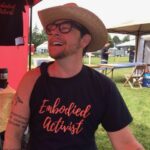
Dr. Liam Snowdon
Co-Founder: Somatic Sex Educators Association
Kimberly Ann Johnson
Author of The Call of the Wild & The Fourth Trimester
Dr. Ellen Heed
STREAM: Scar Tissue Remediation and Management
Keli Garza
Founder of Steamy Chick & The Peristeam Hydrotherapy Institute
Kris Gonzalez, L.Ac.
Founder of The Way of Yin
"Coocky" Tassanee Boonsom
Founder of Loi Kroh Traditional Thai Massage School
Dr. Betty Martin
The Wheel of Conset & Author: The Art of Receiving and Giving
About the Show
We explore the restoration of pleasure, the reclamation of sexual sovereignty, and the realization of our organic sexual wholeness. We engage with leading somatic therapists, sexologists & sexological bodyworkers, and holistic practitioners worldwide who provide practical wisdom from hands-on experiences of working with clients and their embodied sexuality. We invite a deep listening to the organic nature of the body, its sexual essence, and the bounty of wisdom embodied in its life force.
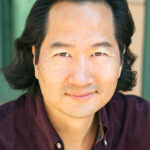
Rahi Chun
Creator: Somatic Sexual Wholeness
Rahi is fascinated by the intersection of sexuality, psychology, spirituality and their authentic embodiment. Based in Los Angeles, he is an avid traveler and loves exploring cultures, practices of embodiment, and healing modalities around the world.
